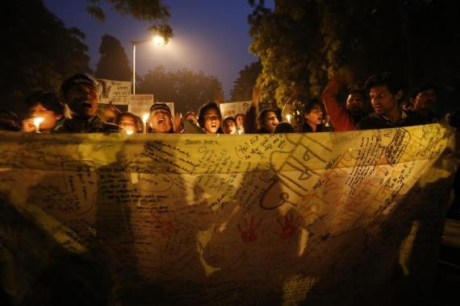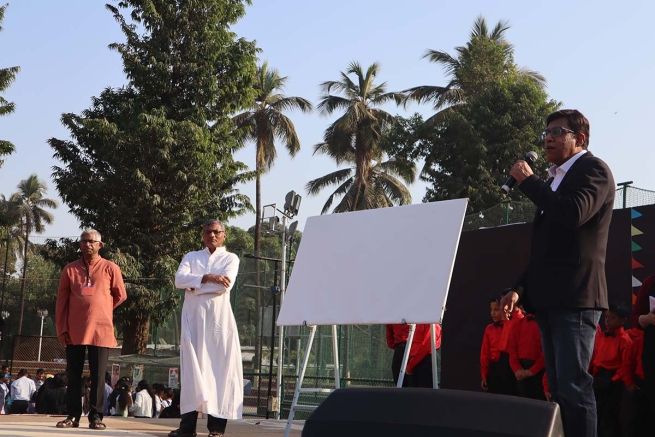TRUSTLAW: Public Education Can End India’s “Rape Epidemic”

(TrustLaw/Reuters) The Indian government must launch a mass public education campaign to help end the “rape epidemic” in the largely patriarchal country, said campaign group Avaaz, highlighting the recent gang rape and murder of a young woman which sparked a national outcry last month.
Public anger over the attack on a 23-year-old student who was beaten, raped and tortured on a bus in New Delhi led to a panel of judges putting forward numerous recommendations for amendments to laws to tackle gender violence in the country.
But Avaaz officials said these recommendations — which include strict punishments for gang rape and making voyeurism and stalking criminal offenses — were not enough and that educating the public and reversing patriarchal attitudes were crucial to ending the rising number of rapes in the country.
“Rape is simply rampant in India today,” said Ricken Patel, Avaaz’s executive director.
“To treat this cancer, Prime Minister Manmohan Singh must back a massive, long-term public education campaign that attacks the attitudes that permit and promote violence against women, harnessing Bollywood and cricket to take the message into every Indian home.”
The 24,206 rapes reported in 2011 by the National Crime Records Bureau (NCRB) are the equivalent of one rape every 20 minutes, but the police estimate only 4 out of 10 rapes are reported, largely because of the deep-rooted conservatism of Indian society, in which many victims are scared to come forward for fear of being “shamed” by their family and community.
FOUR-STEP SOLUTION:
In a new report, Avaaz said there was extensive evidence that mass public education programs had a significant impact on popular cultural attitudes and behavior towards women.
For example, it cited India’s “Bell Bajao” (Ring the doorbell) campaign run by the charity Breakthrough, which it said had achieved a dramatic increase in public awareness about domestic violence in the country.
“(This) shows that where there is the will, resources and competence to do the job well, public education can be a game-changer for social problems that often prove resistant to other methods,” said the report “Curing India’s Rape Epidemic: The Education Option“.
Four steps are required to make a public education campaign to tackle violence against women successful, the report said.
First, the Indian authorities must invest around 50 rupees ($1) per year for every Indian citizen, it said, adding that this cost could be reduced through partnerships with the media.
Second, the campaign should last at least four years, and be carried out in conjunction with permanent education programs in schools.
Third, the government should establish a new authority to take charge of the campaign and recruit the best brains from the media, sport and entertainment industries as well as from civil society organizations.
Finally, the government must establish targets for the reduction in the number of sexual assault cases, so that progress is watched and can be carefully monitored.
Avaaz says it has already collected over one million signatures on a petition calling on the government to launch such a campaign.
“To end the war on women, the government must now prioritize this policy,” the report concluded. “Only a government-led mass education campaign will create an India safe for women.”
###
By Nita Bhalla
PHOTO: REUTERS/Adnan Abidi
See related article > INDIA: New Salesian Initiative to Provide Human Rights Education to Tens of Thousands of Youth




